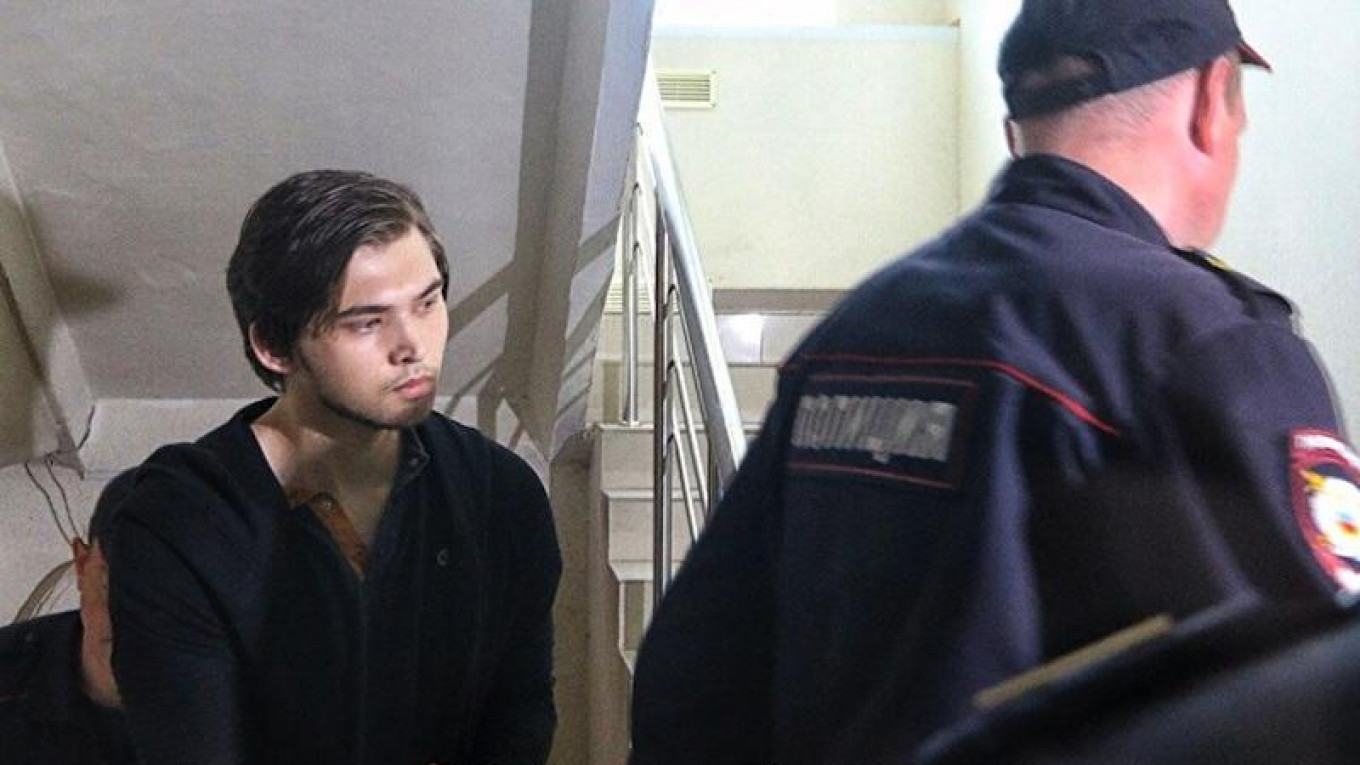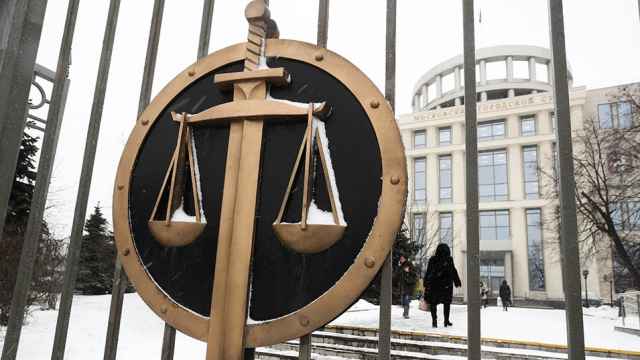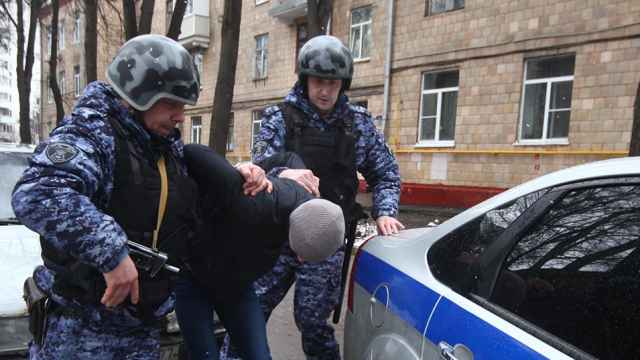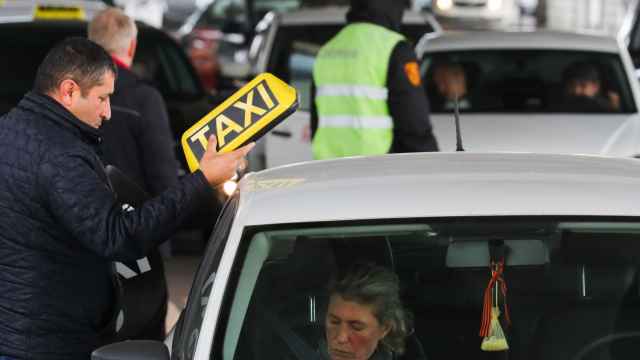A week ago, Ruslan Sokolovsky was a locally famous video blogger in Yekaterinburg, known for his self-titled atheist magazine modeled on Charlie Hebdo, and his YouTube videos, where he sits by a lava lamp, cracking jokes about organized religion. Today, just barely into his twenties, Sokolovsky is a national figure, celebrated and criticized across Russia for a stunt inside a church, not unlike the women of Pussy Riot. On Sept. 3, a day after police raided his home and detained him, Sokolovsky was denied bail and placed behind bars for at least another two months.
On Aug. 11, Sokolovsky published a video on his YouTube channel showing him entering the Church of All Saints in Yekaterinburg. Walking around the cathedral, he then plays Pokemon Go on his iPhone. In a short speech at the beginning of the video, Sokolovsky says he rejects warnings reported in the media that playing Pokemon Go in churches could result in a prison sentence.
On Sept. 5, apparently trying to manage public backlash, Nina Pelevina, the deputy press secretary for the Sverdlovsk region’s Investigative Committee, published an uncharacteristically detailed statement about Sokolovsky’s case, specifying that he is being prosecuted for the content of his YouTube video (not the mere fact that he played Pokemon Go in a church), as well as the content of other videos he’s uploaded to the Internet. Police point out that Sokolovsky added “ironic” and “obscene” comments to the narration of the video he filmed inside the Church of All Saints.
The press release also states that investigators pushed for an arrest because Sokolovsky was living in Yekaterinburg without the necessary registration, in an apartment not rented in his name, without any formal employment. Small amounts of illegal drugs were also discovered in Sokolovsky’s possession when he was detained, “negatively characterizing the young man’s lifestyle.”
Sokolovsky is being charged with two felonies: inciting hatred against a social group and offending religious sensitivities. The latter offense was made a crime in 2013, after Pussy Riot’s infamous “rock concert” inside Moscow’s Cathedral of Christ the Savior.
Since then, at least four people have been convicted of insulting religious people’s feelings. In Feb. 2016, a former university teacher in Orenburg was fined 35,000 rubles (about $500) for publishing an article titled “Evil Christ.” In mid-April, the same court in Yekaterinburg that just arrested Sokolovsky forced a man to undergo a psychological evaluation, after he posted a YouTube video showing him slaughtering a chicken in a voodoo ritual. In June, a court in Kirov sentenced two men to 230 hours of community service for hanging a scarecrow from a memorial cross and attaching an insulting sign.
The hate-speech charges under Article 282 of Russia’s Criminal Code, however, are the more serious allegations against Sokolovsky, who could go to prison for five years if convicted.
If the Russian legal system is still working out how it intends to punish those who offend religious people, there is far less ambiguity when it comes to prosecuting hate speech. In 2015, courts convicted 414 people of violating Article 282.
It seems Sokolovsky has the news agency URA.ru to thank, at least in part, for attracting the attention of the local police. On Aug. 19, the news website reported on Sokolovsky’s Pokemon Go stunt, also highlighting a subsequent video where the blogger criticized the Russian Orthodox Church’s positions on family values. At the end of the report, URA.ru noted that it had appealed to law enforcement agencies to investigate Sokolovsky’s videos for possibly offending religious sensitivities. (On Facebook, the author of this text later explained that URA.ru was merely acting on the advice of its lawyers, who warned that the agency needed to distance itself from Sokolovsky’s remarks.)
Several prominent figures in Yekaterinburg have said publicly that Sokolovsky should be released on bail. The city’s mayor, Yevgeny Roizman, who met today with Sokolovsky’s mother, lobbied the Russian Orthodox Church over the weekend to come to the young man’s aid, and Metropolit of Yekaterinburg and Verkhoturye Kirill soon obliged, ordering his staff to try to persuade the court to release Sokolovsky. The church official told the news agency Znak.com that he hopes to involve the blogger in charity work, to help him “see life differently,” he says.
Sokolovsky says he’s willing to take the deal, saying he would be happy to enter into a dialogue with the church, though he says he has no intention of recanting or admitting that he committed a crime.
Sokolovsky’s mother, who lives several hundred kilometers away, outside the city of Kurgan, has traveled to Yekaterinburg, where she plans to visit her son in jail. Using donations collected from fans and supporters, a legal defense team is now assembling. On Sept. 5, Sokolovsky’s lawyers formally appealed his arrest.
A Message from The Moscow Times:
Dear readers,
We are facing unprecedented challenges. Russia's Prosecutor General's Office has designated The Moscow Times as an "undesirable" organization, criminalizing our work and putting our staff at risk of prosecution. This follows our earlier unjust labeling as a "foreign agent."
These actions are direct attempts to silence independent journalism in Russia. The authorities claim our work "discredits the decisions of the Russian leadership." We see things differently: we strive to provide accurate, unbiased reporting on Russia.
We, the journalists of The Moscow Times, refuse to be silenced. But to continue our work, we need your help.
Your support, no matter how small, makes a world of difference. If you can, please support us monthly starting from just $2. It's quick to set up, and every contribution makes a significant impact.
By supporting The Moscow Times, you're defending open, independent journalism in the face of repression. Thank you for standing with us.
Remind me later.






